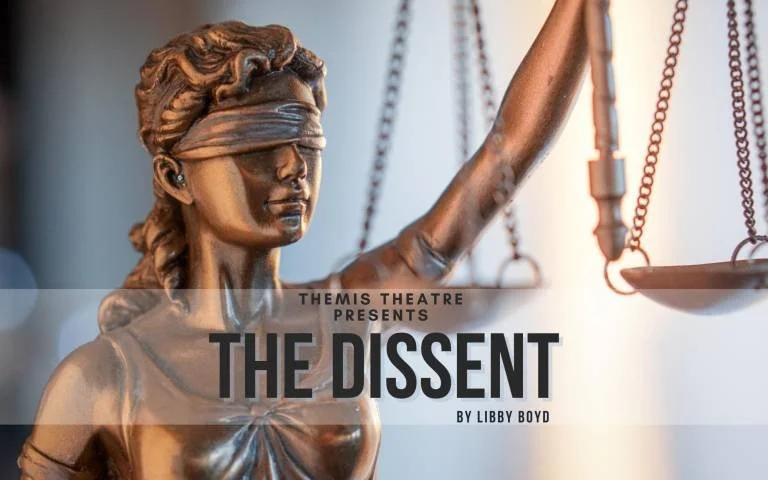The Dissent, Theatre Royal Plymouth - The Lab, 2**, Cormac Richards
THE DISSENT
THEATRE ROYAL PLYMOUTH UNTIL 14 DECEMBER 2022
BOX OFFICE 01752 267222
RUNNING TIME – 1 HOUR – NO INTERVAL
2**
13 DECEMBER 2022
CORMAC RICHARDS
Greek stories and myths are a ripe orchard to pick from when reaching out for plots, characters, themes and historical analogies and in THE DISSENT, writer, Libby Boyd does just that. Presented by Themis Theatre as part of Theatre Royal Plymouth’s LAB programme – a tremendous opportunity for young theatre-makers to receive support and development within a professional theatre – this piece explores the lot of women in the face of a male-run society (amongst other things).
Sexual politics was as alive and well in Ancient Greece as it is in modern society and in exploring this, the play seeks to give three characters from that time the chance to redress the balance for their actions and seek salvation in a better afterworld. Played out in a form of a ‘kangaroo’ court, the three characters plead their case by telling their back story in front of a judge – with the audience indicated as a token jury. It’s a clever concept.
What I find a little confusing is that when the play is so explicitly concerned with gender, why is one of the plaintiffs, the character of Icarus, presented as a female when in every version of the story I have ever come across he is a young man? I realise gender-swapping in the theatre is not uncommon these days, but in this specific example, it just doesn’t ring true. Icarus flying too close to the sun – because he thought he could - leading to the melting of the wings made by his Father, Daedalus, is a prime example of hubris; in the same way it was hubristic of Daedalus to think he could make his son fly. Why the need to twist the original tale?
So the story is continued with Ariadne and Phaedra (briefly) and their associations with Theseus, the Minotaur and the Labyrinth – which was also created by Daedalus. The oral history of these myths often changed the content as they were told and so there are multiple versions of the same story – this is alluded to in the production. Another aspect of these tales is that they become very involved and are often complex and the script here falls foul of providing a clear enough narrative. The interweaving of the strands and the multiple names of characters from the start set the audience on the back foot; any re-telling of these myths needs crystal clarity and I feel the viewers become increasingly distanced throughout.
This is not to say there was not engagement from the performance itself; enthusiastically presented by a cast of three who offer a raft of characters with tongue firmly planted in the cheek. Simple props and costumes suffice in an unfussy production; the use of back lighting and silhouette was very effective and could easily have been used more. At times one of the voices dipped below audible levels and in a very small auditorium this is disappointing.
The ending offered a modern day list of aspects of life for women to be wary of in the face of a male-dominated society – presumably suggesting that things haven’t changed that much over 2000 years. This adjunct feels over-egged; if the main body of the script had been more cohesive, the play should really have been able to speak for itself.
I applaud any look back at history and tales from the Ancient World in order to illustrate modern society – as an ancient historian myself, it has always been my defence for studying it – but this piece lacks the clarity needed to wholly succeed and maybe the choice of other characters might have been advisable. What about the deeds of Clytemnestra? Medea? Agave? – all – in one story or another – carried out monstrous deeds in the face of their treatment at the hands of men; what about Penelope and Lysistrata two of the strongest women in Greek myth. Food for thought maybe?
CAST & CREATIVES
Charlotte Boyle - Ariadne and Daedalus
Ruby Blue Tansey Thomas - Phaedra & Minos
Libby Boyd - Icarus & Theseus
Writer – Libby Boyd
